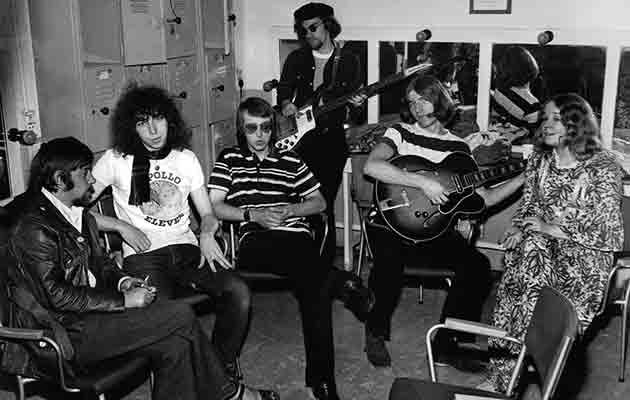They were a bunch of uptight Londoners who wanted to be The Byrds. But after a tragic road crash, Fairport Convention holed up in the countryside, tapped into mystical traditions and reinvented English folk-rock. Nearly 40 years later, they remember: “We were on a crusade…”
Originally published in Uncut’s September 2007 issue (Take 127)
___________________
Turning off the motorway south of Winchester, you find yourself in an older England. A chain of villages and secluded country churches are strung together by twisting lanes. If you didn’t know Farley House existed, you’d never run into it by accident, but we do, and there is the muddy driveway, and the cows, and finally the creamy 17th century façade, its flat lawn and surrounding meadows hacked long ago out of the Hampshire forest alongside the village of Farley Chamberlayne.
Today Farley House is a shell, gutted in preparation for major refurbishment. But it’s still recognisably the building that appears on the sleeve of Fairport Convention’s Liege And Lief, the record that invented – and set the benchmark for – folk rock in Britain. During a three month stay here, Fairport Convention piped fresh air into a stagnating tradition, drawing on a very British heritage to generate a glorious mixture of new songs, turbo-jigs and supernatural ballads. The crackling energy of “Tam Lin”, the sinister slink of foxy “Reynardine”, the bloody fate of “Matty Groves” and the rousing battle cry of “Come All Ye” asked the question: could traditional folk song be claimed and owned by the rock generation, and what could rock learn from the process?

The story of Liege And Lief begins, however, far from the idyll of Farley House. At around 4am on 12 May 1969, on the M1 motorway leading into North London, Fairport Convention’s van was roaring down the tarmac on its final stretch before dropping off at the six occupants’ various homes. The next moment it was cartwheeling off the verge with guitars, drums, speakers and amplifiers bursting out of the back doors and bouncing all over the road. The vehicle contained all bar one member of one of British rock’s most eager hopefuls. Fairport Convention’s drummer, Martin Lamble, died instantly in the crash, as did Jeannie Franklyn, girlfriend of guitarist Richard Thompson. Bassist Ashley Hutchings and rhythm guitarist Simon Nicol suffered lesser injuries, while Fairport’s vocalist, 23 year old Sandy Denny, had driven back in a different car. Their roadie/driver had fallen asleep at the wheel, and was later convicted of causing death by dangerous driving.



